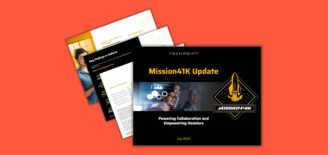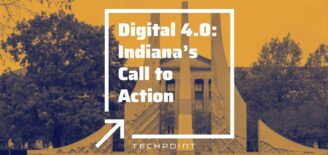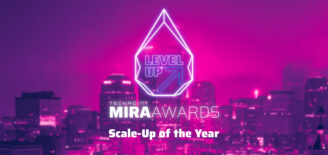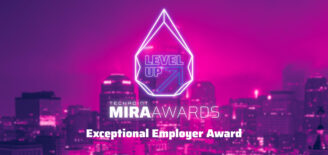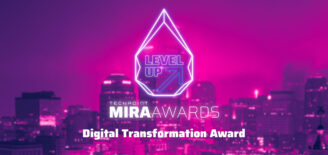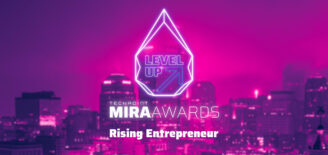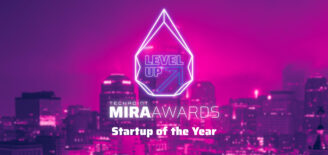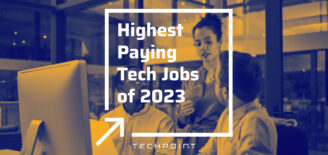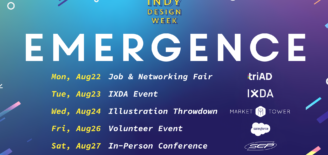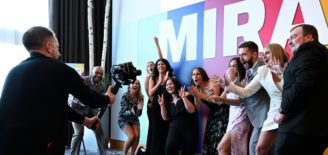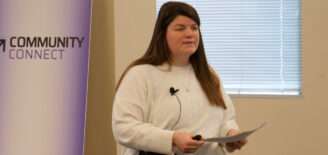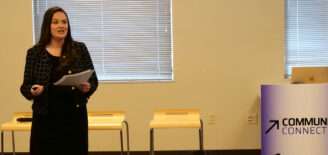MLK Day: Ideas for expanding the reach and presence for people of color and women in tech
As the world continues to evolve and products of innovation are constantly being introduced to mainstream audiences, there has been one constant phenom over the most recent decades that is continuing to disrupt the standard culture norm we once knew — that innovative invention and now widespread career industry is known as technology.
The tech field continues to create space and opportunity for gifted minds and hands to create in ways once deemed unimaginable and impossible. Through it, we have been able to broadcast, communicate, curate, brand and build a plethora of inventions that help propel the world. Technology is so refined and transversal that it not only supports its own industry but serves dozens of other professions as well!
During early inception, the tech world had been predominantly populated by male culture, specifically white male culture. It was arguably unorthodox to even consider that a career space with so much intricacy and diversity in role responsibility would ever apply that same melting pot mentality displayed in its products and services, to their hiring and inclusion processes.
However, to forward thinking leaders like the late Dr. Martin Luther King Jr., it would only be a matter of time before there was a turning of the tide for diversifying and promoting equality for all, in the technology world in particular, and throughout the country. As we prepare to honor Dr. King’s birth and legacy, let us take note of his perspective on the forthcoming and now current state of our country, in respect to the growing diversification of the tech space.
On December 11, 1964, Dr. Martin Luther King Jr. addressed a crowd of world leaders, inventors, activists, philanthropists, family and friends for his Nobel Peace Prize Lecture in the Auditorium of the University of Oslo. Amongst the many poignant points he made regarding segregation and civil rights, the progression of science and the potential future of America, one key mention was the innovation of technology.He noted how, though much progress has been made in science and technology, there hadn’t been much progression in race relations and equality:
“Modern man has brought this whole world to an awe-inspiring threshold of the future. He has reached new and astonishing peaks of scientific success. He has produced machines that think and instruments that peer into the unfathomable ranges of interstellar space. He has built gigantic bridges to span the seas and gargantuan buildings to kiss the skies. His airplanes and spaceships have dwarfed distance, placed time in chains, and carved highways through the stratosphere. This is a dazzling picture of modern man’s scientific and technological progress.
“Yet, in spite of these spectacular strides in science and technology, and still unlimited ones to come, something basic is missing … We have learned to fly the air like birds and swim the sea like fish, but we have not learned the simple art of living together as brothers.”
Many believe that Dr. King was foreshadowing when mentioning how science and tech have evolved so much, yet still have a ways to go. The tech industry today is thriving, but it still lacks a crucial element. Now, more than ever, the industry is shedding light on the importance of having people of color and women included in the tech industry, illustrating a vision that has long been desired yet reluctantly explored, until now.
Today, women and people of color have the opportunity to dominate the technology world with their creativity and presence. More tech brands and organizations are emerging and capitalizing on having a core base that is a reflection of their target demographic — a diverse America.
Organizations like Be Nimble, Next IT Girl, Black Tech Women, Black Data Professionals Association, and local African American Employee Resource Groups are not only generating new tech ideas and solutions consistently, but are creating safe havens for those who ‘look like us’ to be uncensored and uninhibited while exploring all that technology has to offer. It is imperative that organizations like this exist and continue to be widespread so that seeing a person of color and/or woman in a position of power at a tech company is no longer taboo or a rare sighting.
As Be Nimble Ventures prepares to kick off our second annual Pardi Gras Ball — a fundraiser to benefit TechKings, a tech exploration program for young men of color — we remember the importance of Dr. King and his message. How have we been able to advance in science and technology far beyond our dreams, but haven’t quite figured out how to increase diversity within this field?
The solution? Be okay with uncomfortable conversations. Support events that help increase access and opportunity to underserved communities. Understand the importance of innovation through diversity of thought and experience. And lastly, much like this monthly diversity series with Be Nimble and TechPoint, let’s create spaces where we are able to share with one another the significance and importance of technology, and introduce new ideas for expanding our reach and presence in a world that was not created for people of color to thrive.
In closing from Dr. King: “But with patient and firm determination we will press on until every valley of despair is exalted to new peaks of hope, until every mountain of pride and irrationality is made low by the leveling process of humility and compassion; until the rough places of injustice are transformed into a smooth plane of equality of opportunity; and until the crooked places of prejudice are transformed by the straightening process of bright-eyed wisdom.”
About the Author
 Kelli Jones is the founder and CEO of Be Nimble, a social enterprise with the goal of advancing diversity initiatives to create fully inclusive tech ecosystems. The organization focuses its efforts on the “pipeline” covering K-12, workforce development, and start-up and entrepreneurship support.
Kelli Jones is the founder and CEO of Be Nimble, a social enterprise with the goal of advancing diversity initiatives to create fully inclusive tech ecosystems. The organization focuses its efforts on the “pipeline” covering K-12, workforce development, and start-up and entrepreneurship support.
This year, Be Nimble plans to fund, accelerate and incubate general market app and web companies invented by women, minority, and LGBTQ entrepreneurs.




